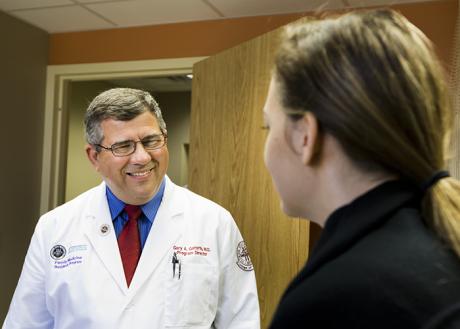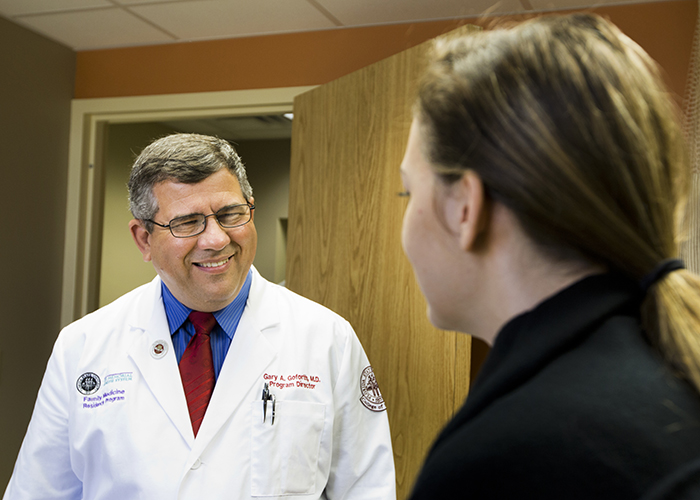Five named to state's workforce council


December 2015
Five of the 13 members appointed to the state Physician Workforce Advisory Council last month are affiliated with the FSU College of Medicine.
“The council’s primary responsibility is to advise the state surgeon general and others on the status of the physician workforce in the state and provide input into policies and decisions regarding the future workforce,” said Alma Littles, senior associate dean for medical education and academic affairs.
The appointments, announced by state Surgeon General and Secretary of Health John Armstrong, last through Nov. 25, 2019.
In alphabetical order, these are the five members with an FSU connection:
- Thesla Berne-Anderson, M.S., executive director, Office of Undergraduate Premedical Advising and Outreach and Precollege Programs.
- Gary Goforth, M.D., program director, FSU College of Medicine Family Medicine Residency Program at Lee Memorial Health System (pictured here).
- Littles, M.D., senior associate dean and professor of family medicine and rural health (reappointed).
- Dennis Saver, M.D., family physician, Primary Care of the Treasure Coast, clerkship faculty member at Fort Pierce Regional Campus.
- Kevin Sherin, M.D., Florida Department of Health director and health officer, Orange County, clerkship faculty member at Orlando Regional Campus.
Littles said the council’s past work was in the categories of graduate medical education; physician attraction, retention and retraining; and medical education and the applicant pipeline.
Here, from Florida’s 2014 Physician Workforce Annual Report, are examples of the data that the council compiles:
- Gender and racial diversity has increased since 2009, as the percentage of female physicians has increased and the percentage of white physicians has decreased.
- Almost half (21,743 or 49.5 percent) of all physicians are males age 50 and older.
- Since 2009, the percentage of physicians age 56 and older has increased from 35.6 percent to 43.6 percent.
Littles notes that the College of Medicine’s unique educational model appoints practicing physicians at six regional campuses as faculty members for its medical students, and that it has a successful history of admitting diverse classes of students.
“Having five of the six council members as FSU College of Medicine faculty or employees,” she said, “brings a wealth of knowledge and experience.”

